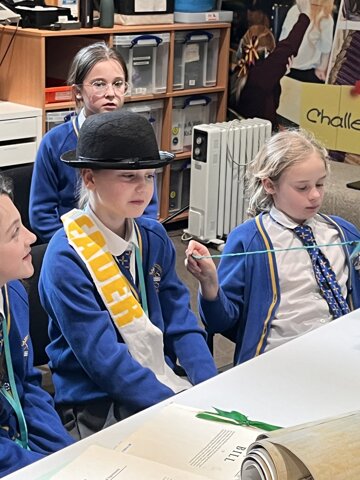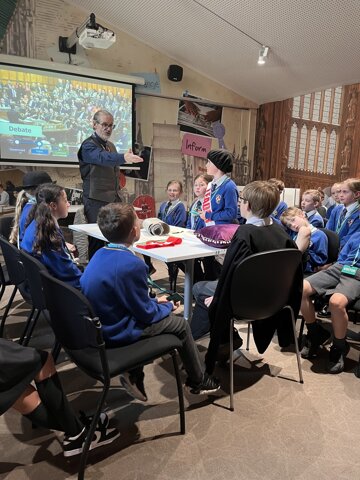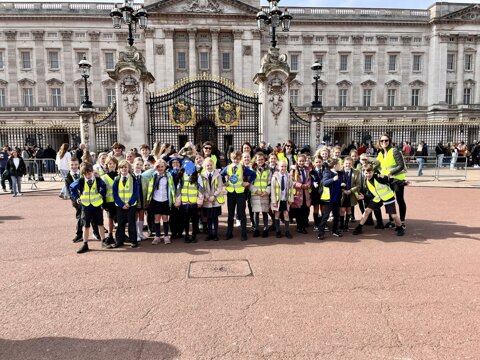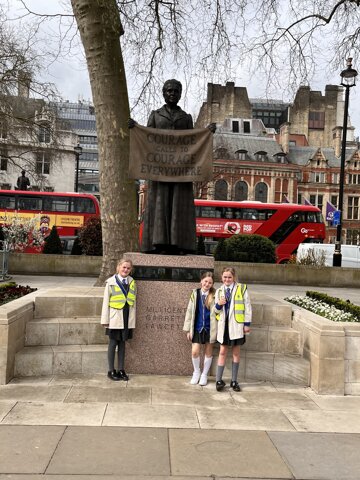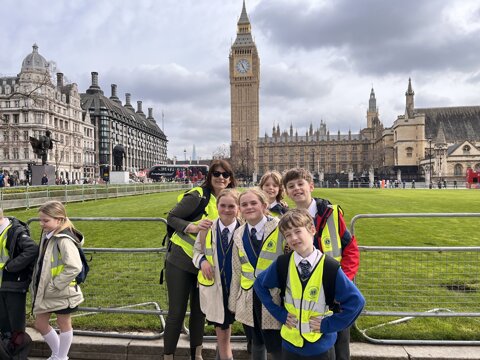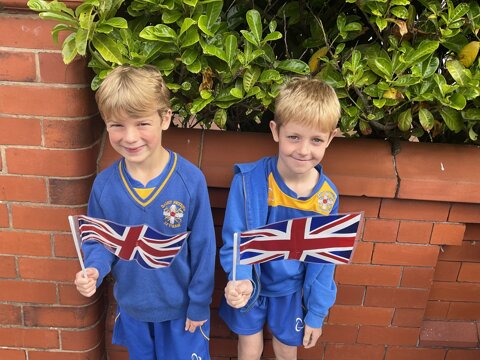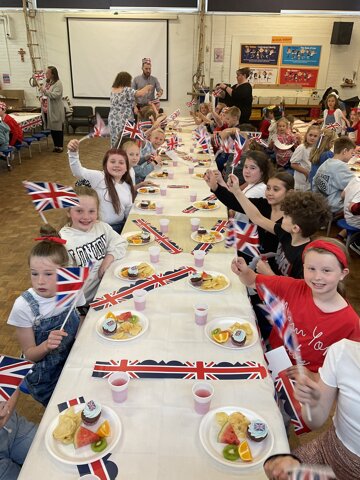British Values
In support of the Department for Education (DofE) document: Promoting fundamental British values as part of SMSC in schools, Departmental advice for maintained schools, November 2014.
At St Peter’s, we value the diversity of the backgrounds of all pupils, families and the wider school community and strongly believe in upholding British values through all aspects of our school provision.
The DofE states that there is a need
“To create and enforce a clear and rigorous expectation on all schools to promote the fundamental British values of democracy, the rule of law, individual liberty and mutual respect and tolerance of those with different faiths and beliefs”.
Our school reflects British values in all that we do. We aim to nurture our children on their journey through life so they can grow into safe, caring, democratic, responsible and tolerant adults who make a positive difference to British society and to the world and the wider world.
What is meant by British values?
Learning about British values forms a key part of children’s spiritual, moral, cultural and social education. The four British values that the Government has identified for schools to focus on are:
- Democracy
- The Rule of Law
- Individual Liberty
- Mutual Respect and Tolerance of Those of Different Faiths and Beliefs
How should we help our children prepare for adult life as citizens of Britain?
- Develop their self-confidence and self esteem.
- Develop their understanding of right and wrong, and their respect for the law.
- Encourage them to take responsibility for their behaviour.
- Encourage involvement in the community and wider society.
- Encourage respect for the public services and institutions of Britain.
- Promote tolerance of and respect for all cultures and faiths.
- Encourage participation in the democratic process.
How does our school develop children’s understanding of British values?
We uphold the British value of Democracy by:
- facilitating a democratic process for electing pupil leadership roles, including school councillors and the running of the council.
- teaching about the democratic process in Britain, at both a local and national level. We teach about communities and pressure groups, how children can participate in these and make changes to life at all levels from local to global.
- taking turns in class, at dinner time and in after school clubs.
- In Year 5, pupils have the opportunity to visit the Houses of Parliament and learn more about the democratic systems at a local and national level.
We uphold the British value of the Rule of Law by:
- teaching children an understanding of human rights, in particular the UNICEF rights of the child.
- implementing our school and class charters which have clear and agreed statements and ensuring that the children know their own right and respect the rights of others.
- teaching children to learn about the process of law-making and the part that citizens can play in that process.
- implementing our procedures and protocols for dealing with any behavioural or bullying issues and the very rare incidents of racial, homophobic and other forms of discrimination, which demonstrates to pupils that we take these issues very seriously, mirroring the attitudes of British society.
We uphold the British value of Individual Liberty
- teaching an understanding of the concept of freedom and choice.
- teaching our RE curriculum, which inculcates values of understanding, tolerance and respect for others, including those of other faiths.
- teaching children an understanding of human rights, in particular the UNICEF rights of the child, through assemblies and class lessons.
- providing our extra-curricular provision, which offers equal opportunities for all children, boys and girls, and children with Special Educational Needs in sport and other areas.
- holding discussions in RE, English and other subjects, which allow children to develop respect for the opinions, values and beliefs of others.
We uphold the British value of Mutual Respect and Tolerance of different Faiths and Beliefs
- expecting children to demonstrate responsibility in many ways in school.
- expecting children to take responsibility in every class for a variety of roles which assist in the running of the classroom.
- encouraging children to have responsibility for their own possessions, behaviour and work, both at school and at home and to always do their personal best in all aspects of school life.
- expecting children to be respectful of other beliefs-loving others as ourselves.
- training staff to deliver information about keeping safe on the internet to all our children and holding information sessions for parents about this.Gove
.png)
